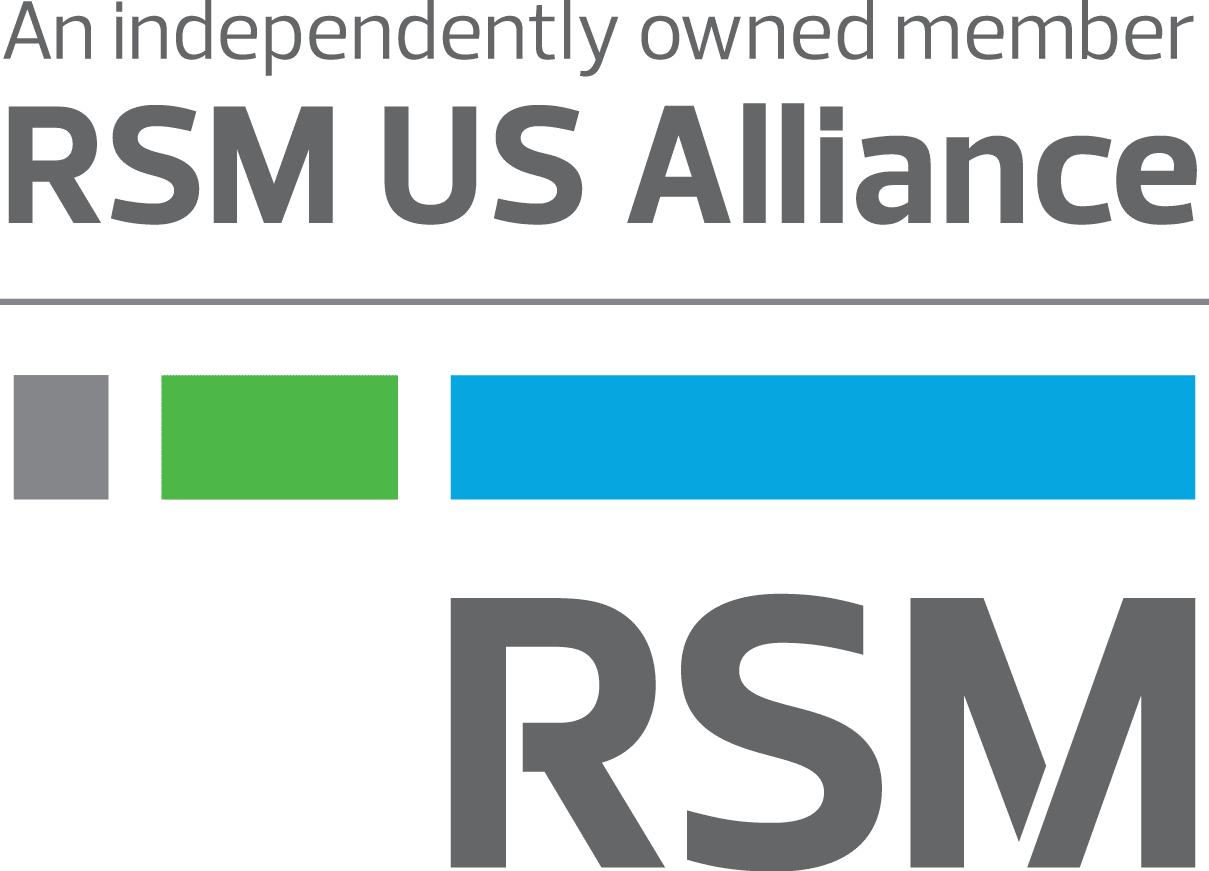IRS announces details for ERC Voluntary Disclosure program
ARTICLE | December 22, 2023
Authored by RSM US LLP
Executive summary:
Employee Retention Credit Voluntary Disclosure program
On Dec. 21, 2023, the IRS announced the details of an anticipated employee retention credit Voluntary Disclosure program (ERC-VDP) for employers who claimed and received an ERC refund for a quarter but were not eligible. The program allows claimants to repay ERC at a reduced rate of 80% of the credit. In addition, the program waives penalties and interest on the full amount, not just the 80% returned. The IRS is only accepting applications for the program until March 22, 2024. Accepted applicants will be required to execute a closing agreement stating they are not entitled to ERC and must provide the name and contact information for any preparer or advisor who assisted in claiming the ERC. The IRS has also published a set of FAQs relating to the ERC-VDP.
The IRS also announced that they are issuing another round of letters proposing adjustments to tax issued to 20,000 employers that claimed an erroneous or excessive amount of ERC.
IRS announces details for ERC Voluntary Disclosure program
ERC VDP continuation of ongoing IRS initiative to combat dubious ERC claims
Following the October announcement of the ERC withdrawal process, the IRS has released the details of the new ERC-VDP which will allow ERC claimants who have already received the refund or credit against employment taxes to apply to repay the ERC at a reduced rate of 80% of the claim, without penalties or interest. The ERC-VDP was developed mostly for employers who were induced into claiming ERC and now realize they were not entitled to the credits. In particular, the reduced amount required to be repaid was designed to allow employers who paid a contingency fee to a promoter to repay the improper credit at a lower financial cost. The required disclosure about preparers who assisted in filing the claim will help the IRS gather information on promoters who took aggressive positions in advising taxpayers to claim ERC.
Eligibility for ERC-VDP
Taxpayers who claimed ERC and have received the refund or the credit against their employment taxes are eligible to participate in the program. (Taxpayers who have not yet received an ERC credit or refund but no longer believe they are entitled to ERC can use the withdrawal process to withdraw their claim). Taxpayers are not eligible for ERC-VDP if any of the following apply:
- The taxpayer is under criminal investigation or has been notified that the IRS intends to commence a criminal investigation;
- The IRS has already received information alerting it to the taxpayer’s noncompliance;
- The taxpayer is undergoing an employment tax examination for the period for which it is applying; or
- The taxpayer has already received a notice and demand for repayment of all or part of the claimed ERC.
Employers who claimed ERC using a third-party payer, such as a professional employer organization (PEO) or payroll agent, are eligible for ERC-VDP, but the third-party payer must submit the application on the employer’s behalf. The announcement provides some guidance for third-party payers assisting with such applications.
In order to use the program for a given quarter, the taxpayer must give up the full amount of ERC that was applied for on the Form 941 X for that quarter. Taxpayers who want to reduce only a portion of the ERC claimed in a quarter are not eligible for ERC-VDP or the withdrawal process; these taxpayers must file an amended return to adjust the ERC claimed.
Terms of participation in ERC-VDP
Employers who are approved to participate in the program (’participants’) will be required to execute a closing agreement which provides that they are not eligible for, or entitled to, any ERC for the tax period(s) at issue. The participant will repay 80% of the claimed ERC to the Department of Treasury. Participants will also be excused from repaying overpayment interest received on any issued ERC refund. Underpayment interest will not be required if the participant makes full payment prior to executing the closing agreement.
The program also provides for the possibility of repaying the ERC amount through an installment arrangement. If the IRS approves repayment under an installment agreement, interest will only accrue prospectively from the agreement date. The IRS will not assert civil penalties against participants that make full payment of the 80% of claimed ERC prior to executing the required closing agreement.
For many taxpayers, the ERC impacted their income tax obligations as well. Because ERC cannot be claimed on wages that are claimed as a deduction against income, recipients of ERC were expected to reduce wage deductions for the 2020 and/or 2021 tax years equal to the ERC amounts. If participants had not already amended their income tax returns to reduce their wage deduction by any claimed ERC, they will not need to file amended returns or Administrative Adjustment Requests (AARs) to reduce their wage deduction. Participants who already reduced their wage deduction by the claimed ERC may file an amended return or AAR to reclaim the previously reduced wage expense. No income will be attributed to participants as a result of participating in the program.
If a return preparer or advisor assisted the participant in claiming the ERC, the participant must provide the name, address, and phone number of the preparer or advisor as well as a description of services provided.
Under the new application form, a taxpayer can provide a power of attorney to allow another person to represent the taxpayer in making the VDP application.
Applications for ERC-VDP due by March 22, 2024, 11:59 pm local time.
Taxpayers apply to participate in ERC-VDP by completing Form 15434, Application for ERC-VDP and submitting it via the IRS Document Upload Tool by March 22, 2024. Form 15434 must be signed by an authorized person under penalties of perjury. Taxpayers applying for ERC-VDP for a period ending in 2020 must include a completed and signed statute extension Form ERC-VDP SS-10. Form 15434 will help calculate the payment required to participate in ERC-VDP. Paying the balance via Electronic Federal Tax Payment System (EFTPS) at the time of applying for ERC-VDP is encouraged and could speed up the resolution of the case. However, as discussed above, participants who are unable to pay the entire balance may be considered for an installment agreement.
The IRS FAQs state that ERC-VDP applications will be handled on a first come, first serve basis. The FAQs indicate that most cases should resolve quickly but also provide there is no way to estimate how long the process will take. Applicants can call the ERC-VDP hotline at 414-231-2222 and leave a voicemail to check on the status of their application or for assistance with the ERC-VDP process, including completing Form 15434.
If a taxpayer’s application is approved, the IRS will prepare a closing agreement under section 7121 of the Code and mail the closing agreement to the participant. Once a participant receives the ERC-VDP closing agreement package, they will be asked to review and return the signed agreement within 10 business days. Participants need to pay balances due prior to signing the agreement in order to receive all the benefits of the program. If the IRS denies a taxpayer’s application to participate in ERC-VDP, there is no method to review or appeal the denial. Further, a taxpayer’s participation in ERC-VDP does not preclude the IRS from later investigating any criminal conduct or provide any immunity from prosecution.
This article was written by Anne Bushman, Alina Solodchikova, Karen Field , Marissa Lenius and originally appeared on 2023-12-22.
2022 RSM US LLP. All rights reserved.
https://rsmus.com/insights/tax-alerts/2023/irs-announces-details-for-erc-voluntary-disclosure-program-.html
The information contained herein is general in nature and based on authorities that are subject to change. RSM US LLP guarantees neither the accuracy nor completeness of any information and is not responsible for any errors or omissions, or for results obtained by others as a result of reliance upon such information. RSM US LLP assumes no obligation to inform the reader of any changes in tax laws or other factors that could affect information contained herein. This publication does not, and is not intended to, provide legal, tax or accounting advice, and readers should consult their tax advisors concerning the application of tax laws to their particular situations. This analysis is not tax advice and is not intended or written to be used, and cannot be used, for purposes of avoiding tax penalties that may be imposed on any taxpayer.
RSM US Alliance provides its members with access to resources of RSM US LLP. RSM US Alliance member firms are separate and independent businesses and legal entities that are responsible for their own acts and omissions, and each are separate and independent from RSM US LLP. RSM US LLP is the U.S. member firm of RSM International, a global network of independent audit, tax, and consulting firms. Members of RSM US Alliance have access to RSM International resources through RSM US LLP but are not member firms of RSM International. Visit rsmus.com/aboutus for more information regarding RSM US LLP and RSM International. The RSM(tm) brandmark is used under license by RSM US LLP. RSM US Alliance products and services are proprietary to RSM US LLP.
LGA, LLP is a proud member of RSM US Alliance, a premier affiliation of independent accounting and consulting firms in the United States. RSM US Alliance provides our firm with access to resources of RSM US LLP, the leading provider of audit, tax and consulting services focused on the middle market. RSM US LLP is a licensed CPA firm and the U.S. member of RSM International, a global network of independent audit, tax and consulting firms with more than 43,000 people in over 120 countries.
Our membership in RSM US Alliance has elevated our capabilities in the marketplace, helping to differentiate our firm from the competition while allowing us to maintain our independence and entrepreneurial culture. We have access to a valuable peer network of like-sized firms as well as a broad range of tools, expertise, and technical resources.
For more information on how LGA, LLP can assist you, please call us at (781) 569-4700.


